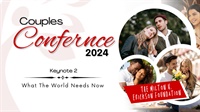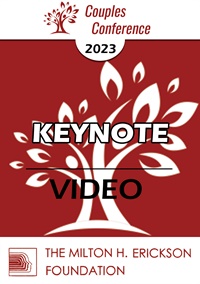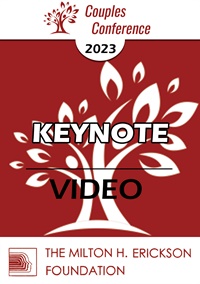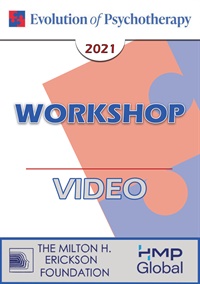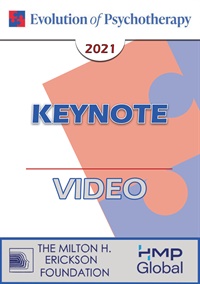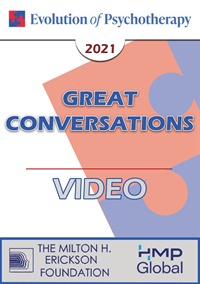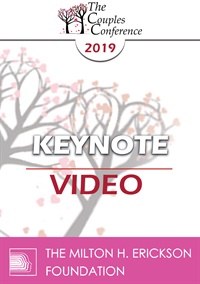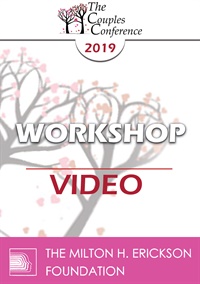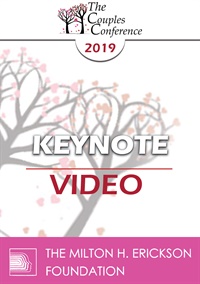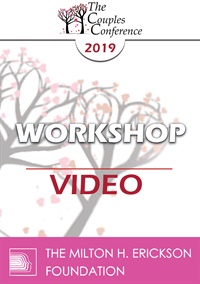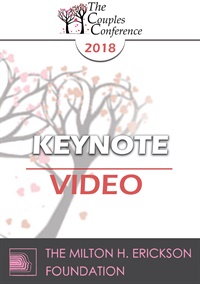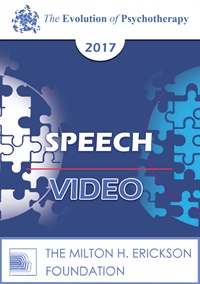- Average Rating:
- Not yet rated
- Topic Areas:
- Keynotes | Psychobiological Approach to Couples Therapy (PACT) | Transference Focused Psychotherapy (TFP) | Trauma Studies
- Bundle(s):
- 2024 Couples Conference Bundle
- Categories:
- Couples Conference | Couples Conference 2024 | Pioneers in Couples and Family Therapy
- Faculty:
- Stan Tatkin, PsyD, MFT
- Course Levels:
- Master Degree or Higher in Health-Related Field
- Duration:
- 1:05:04
- Format:
- Audio and Video
- Original Program Date:
- May 03, 2024
- Short Description:
- Exploring what sustains long-term romantic partnerships, this keynote reframes love as insufficient without shared vision, purpose, and principles of governance. Tatkin outlines how secure-functioning couples reduce threat, foster co-regulation, and build enduring bonds by operating as collaborative, fair, and organized systems grounded in mutual responsibility.
- Price:
- $59.00 - Base Price
- Average Rating:
- Not yet rated
- Topic Areas:
- Keynotes | Intimacy | Relational Life Therapy Model (RLT)
- Categories:
- Couples Conference | Couples Conference 2023 | Pioneers in Couples and Family Therapy
- Faculty:
- Terry Real, LICSW
- Course Levels:
- Master Degree or Higher in Health-Related Field
- Duration:
- 40:45
- Format:
- Audio and Video
- Original Program Date:
- May 06, 2023
- Short Description:
- This keynote on Relational Life Therapy (RLT) focuses on intimacy, secure attachment, and the shift from individualism to relational living. It outlines three phases of RLT—waking up, joining through truth, and teaching skills—while addressing adaptive childhood patterns. Emphasis is placed on relational mindfulness, repair strategies, and helping clients think relationally to build stronger, more connected partnerships.
- Price:
- $59.00 - Base Price
- Average Rating:
- Not yet rated
- Topic Areas:
- Keynotes | Developmental Therapy Model | Couples Therapy
- Categories:
- Couples Conference | Couples Conference 2023 | Pioneers in Couples and Family Therapy
- Faculty:
- Ellyn Bader, PhD
- Course Levels:
- Master Degree or Higher in Health-Related Field
- Duration:
- 30:53
- Format:
- Audio and Video
- Original Program Date:
- May 05, 2023
- Short Description:
- An overview of the Developmental Model in couples therapy, focusing on transformative strategies for therapists. Learn how to guide couples through predictable relationship stages, support individual growth, and create lasting change through strong leadership, emotional risk-taking, and strategic interventions. Includes practical techniques for managing client challenges and fostering deeper intimacy.
- Price:
- $59.00 - Base Price
- Average Rating:
- Not yet rated
- Topic Areas:
- Workshops | Family Systems | Social Psychology | Therapist Techniques
- Categories:
- Evolution of Psychotherapy | Evolution of Psychotherapy 2021 | Pioneers in Couples and Family Therapy
- Faculty:
- Ellyn Bader, PhD
- Course Levels:
- Master Degree or Higher in Health-Related Field
- Duration:
- 2 hours
- Format:
- Audio and Video
- Original Program Date:
- Dec 03, 2021
- Short Description:
- Ellyn Bader presents her developmental model for couples therapy, focusing on treating trauma through structured communication techniques. She demonstrates how therapists can help couples overcome developmental challenges, build self-differentiation, and heal from various traumatic experiences using the initiator-inquirer method. The approach supports emotional growth, empathy, and rebuilding intimacy by guiding partners to understand themselves and each other more deeply.
- Price:
- $59.00 - Base Price
- Average Rating:
- Not yet rated
- Topic Areas:
- Addiction | Attachment | Couples Therapy | Keynotes | Love | Relationships
- Categories:
- Evolution of Psychotherapy | Evolution of Psychotherapy 2021
- Faculty:
- Helen E. Fisher, PhD
- Course Levels:
- Master Degree or Higher in Health-Related Field
- Duration:
- 1 hour
- Format:
- Audio and Video
- Original Program Date:
- Dec 03, 2021
- Short Description:
- Is technology changing love? Why do you fall in love with one person rather than another? Why is the rejected brain primed for psychotherapy? How can you use neuroscience to keep love alive? And where are we headed in our digital age? Anthropologist and neuroscientist Dr. Helen Fisher uses her brain scanning work (fMRI) to discuss three basic brain systems that evolved for mating and reproduction--the sex drive, romantic love, and attachment; each plays a pivotal role in human health and happiness. And she uses her data on 50,000 single Americans to explain a new (and positive) trend in courtship, what she calls “slow love.” She then discusses her data on the biological foundations of human personality—specifically four basic styles of thinking and behaving that impact love relationships and all other social interactions.
- Price:
- $59.00 - Base Price
- Average Rating:
- Not yet rated
- Topic Areas:
- Attachment | Great Conversations | Psychotherapy
- Categories:
- Evolution of Psychotherapy | Evolution of Psychotherapy 2021
- Faculty:
- Sue Johnson, EdD
- Course Levels:
- Master Degree or Higher in Health-Related Field
- Duration:
- 1 hour
- Format:
- Audio and Video
- Original Program Date:
- Dec 02, 2021
- Short Description:
- Psychotherapy is in chaos - it needs a clear path forward that integrates research, theory and practice. Attachment science offers us a clear way to on target interventions that bring out clients home to health and resilience.
- Price:
- $59.00 - Base Price
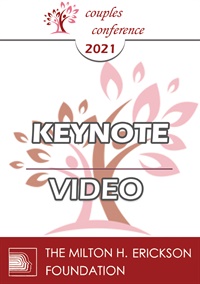
Credit available - Click Here for more information
- Average Rating:
- Not yet rated
- Topic Areas:
- Couples Therapy | IMAGO | Keynotes | Therapist Development
- Categories:
- Couples Conference | Couples Conference 2021 | Online Continuing Education | Pioneers in Couples and Family Therapy
- Faculty:
- Harville Hendrix, PhD | Helen LaKelly Hunt, PhD
- Course Levels:
- Master Degree or Higher in Health-Related Field
- Duration:
- 1 hour
- Format:
- Audio and Video
- Original Program Date:
- Jun 06, 2021
- Short Description:
- This keynote introduces Imago Relationship Therapy, emphasizing safe conversations and the shift to a relational paradigm. Key practices include structured dialogues—such as mirroring, validating, and empathic responses—to strengthen connection and address early childhood influences. The approach focuses on the “space between” partners, aiming to build conscious partnerships, improve relational skills, and support brain health through evidence-based methods.
- Price:
- $29.00 - Base Price
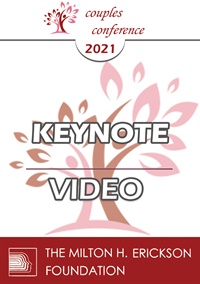
Credit available - Click Here for more information
- Average Rating:
- Not yet rated
- Topic Areas:
- Couples Therapy | Love | Continuing Education | Keynotes
- Categories:
- Couples Conference | Couples Conference 2021 | Online Continuing Education | Pioneers in Couples and Family Therapy
- Faculty:
- Stan Tatkin, PsyD, MFT
- Course Levels:
- Master Degree or Higher in Health-Related Field
- Duration:
- 1 Hour 2 Minutes
- Format:
- Audio and Video
- Original Program Date:
- Jun 05, 2021
- Short Description:
- An exploration of how principle-based relationships—grounded in shared purpose, vision, and governance—can anchor couples amid stress, miscommunication, and human fallibility. Emphasizing co-regulation and mutual accountability, the session highlights how therapists can guide partners toward secure functioning while attending to broader ethical, social, and psychological dimensions of relational life.
- Price:
- $29.00 - Base Price
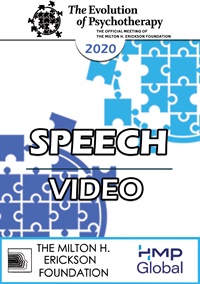
- Average Rating:
- Not yet rated
- Topic Areas:
- Couples Therapy | COVID | Speeches | Social Psychology | Workplace Psychology
- Categories:
- Evolution of Psychotherapy | Evolution of Psychotherapy 2020 | Pioneers in Couples and Family Therapy
- Faculty:
- Ellyn Bader, PhD
- Course Levels:
- Master Degree or Higher in Health-Related Field
- Duration:
- 1 hour
- Format:
- Audio and Video
- Original Program Date:
- Dec 12, 2020
- Short Description:
- Bader reveals strategies for couples navigating business partnerships including addressing communication, decision-making, and relationship dynamics. Drawing from her Silicon Valley experience, she offers insights into managing professional and personal challenges, with a focus on shared commitment, clear roles, and mutual appreciation. The presentation includes practical tools for couples working together, informed by research and real-world experiences.
- Price:
-
Sale is $29.00
price reduced from Base Price - $59.00
Credit available - Click Here for more information
- Average Rating:
- Not yet rated
- Topic Areas:
- Keynotes | Neuroscience | Couples Therapy
- Bundle(s):
- CC19 Main Conference Video Bundle | CC19 Individual Selections
- Categories:
- Couples Conference | Couples Conference 2019 | Online Continuing Education | Pioneers in Couples and Family Therapy
- Faculty:
- Stan Tatkin, PsyD, MFT
- Course Levels:
- Master Degree or Higher in Health-Related Field
- Duration:
- 59:40
- Format:
- Audio and Video
- Original Program Date:
- Apr 14, 2019
- Short Description:
- This keynote explores the neurobiology of relational ethics, asking why partners sometimes act against their own or each other’s best interest. Tatkin examines how brain systems governing threat, stress, and reward influence moral behavior, and urges therapists to help couples co-create principles like fairness, transparency, and mutual care—shifting from reactive habits to secure, value-driven relating.
- Price:
-
Sale is $29.00
price reduced from Base Price - $59.00
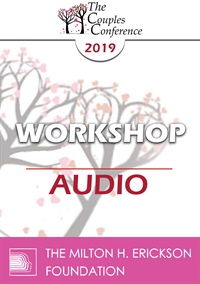
Credit available - Click Here for more information
- Average Rating:
- Not yet rated
- Topic Areas:
- Workshops | Psychobiological Approach to Couples Therapy (PACT) | Personality Disorders | Continuing Education | Couples Therapy
- Bundle(s):
- CC19 Main Conference Audio Bundle | CC19 Individual Selections
- Categories:
- Couples Conference | Couples Conference 2019 | Online Continuing Education | Pioneers in Couples and Family Therapy
- Faculty:
- Stan Tatkin, PsyD, MFT
- Duration:
- 3:06:45
- Format:
- Audio Only
- Original Program Date:
- Apr 14, 2019
- Short Description:
- This advanced PACT workshop explores how to work effectively with personality-disordered partners, distinguishing structural deficits from insecure attachment. Drawing from object relations and ego psychology, it examines disorders like borderline and narcissistic personality, emphasizing projective identification, betrayal, and power dynamics. Techniques focus on fostering secure functioning while navigating trauma, trust ruptures, and cultural influences within couple systems.
- Price:
- $15.00 - Base Price
CC19 Workshop 13 - Working with Escalated Couples: Coming Home from Hell with EFT - Sue Johnson, EdD
Credit available - Click Here for more information
- Average Rating:
- Not yet rated
- Topic Areas:
- Workshops | Attachment | Couples Therapy | Emotionally Focused Therapy (EFT)
- Bundle(s):
- CC19 Main Conference Video Bundle | CC19 Individual Selections
- Categories:
- Couples Conference | Couples Conference 2019 | Online Continuing Education
- Faculty:
- Sue Johnson, EdD
- Course Levels:
- Master Degree or Higher in Health-Related Field
- Duration:
- 2:22:13
- Format:
- Audio and Video
- Original Program Date:
- Apr 14, 2019
- Short Description:
- This workshop will outline the EFT Way through conflict and disconnection, pain and mayhem that is a couple at war with each other. Specific interventions such as Catch the Bullet will be outlined. In the second half of the workshop, the process of attachment injury healing will also be addressed.
- Price:
-
Sale is $29.00
price reduced from Base Price - $59.00
Credit available - Click Here for more information
- Average Rating:
- Not yet rated
- Topic Areas:
- Keynotes | Attachment | Couples Therapy | Emotionally Focused Therapy (EFT) | Psychotherapy
- Bundle(s):
- CC19 Main Conference Video Bundle | CC19 Individual Selections
- Categories:
- Couples Conference | Couples Conference 2019 | Online Continuing Education
- Faculty:
- Sue Johnson, EdD
- Course Levels:
- Master Degree or Higher in Health-Related Field
- Duration:
- 53:16
- Format:
- Audio and Video
- Original Program Date:
- Apr 13, 2019
- Short Description:
- Attachment science in action- The EFT route to safe and sound in love relationships. Attachment- as captured in the EFT model- offers an on target, tested and profoundly relevant map to love and loving. This presentation will outline this map and show how key interventions lead predictably to secure lasting connection and promote health and growth in individual partners.
- Price:
-
Sale is $29.00
price reduced from Base Price - $59.00
Credit available - Click Here for more information
- Average Rating:
- Not yet rated
- Topic Areas:
- Workshops | Couples Therapy | Developmental Therapy Model
- Bundle(s):
- CC19 Main Conference Video Bundle | CC19 Individual Selections
- Categories:
- Couples Conference | Couples Conference 2019 | Online Continuing Education | Pioneers in Couples and Family Therapy
- Faculty:
- Ellyn Bader, PhD
- Course Levels:
- Master Degree or Higher in Health-Related Field
- Duration:
- 1:20:29
- Format:
- Audio and Video
- Original Program Date:
- Apr 12, 2019
- Short Description:
- Join Ellyn Bader as she provides a solid introduction to The Developmental Model of Couples Therapy. This model enables you to make a targeted assessment of what’s wrong and then select stage-specific interventions based on the developmental capacities your clients are lacking. Learn to move your clients from hurt, bitterness and outrage to collaboration, openness and increased accountability. Ellyn will use video demos and transcripts to reveal the power of this model.
- Price:
-
Sale is $29.00
price reduced from Base Price - $59.00
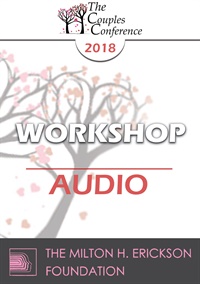
- Average Rating:
- Not yet rated
- Topic Areas:
- Emotionally Focused Therapy (EFT) | Workshops | Attachment | Couples Therapy | Relationships
- Categories:
- Couples Conference | Couples Conference 2018
- Faculty:
- Sam Jinich, PhD
- Duration:
- 1:16:10
- Format:
- Audio Only
- Original Program Date:
- May 05, 2018
- Short Description:
- Secure attachment offers us a potent sense of safety and a way to maintain equilibrium in the presence of danger or threat. These bonds allow us to tolerate and cope with our human frailty. The love one person feels from another has an enormous effect on them, both physically and emotionally. One of the goals of EFT is to help partners see how they are both caught in a recurring pattern of emotional disconnection, triggering each other into aggressively demanding a response or freezing up and sh
- Price:
- $15.00 - Base Price
Credit available - Click Here for more information
- Average Rating:
- Not yet rated
- Topic Areas:
- Keynotes | Continuing Education | Couples Therapy | Community | IMAGO | Relationships
- Categories:
- Couples Conference | Couples Conference 2018 | Online Continuing Education | Pioneers in Couples and Family Therapy
- Faculty:
- Harville Hendrix, PhD | Helen LaKelly Hunt, PhD
- Course Levels:
- Master Degree or Higher in Health-Related Field
- Duration:
- 54:42
- Format:
- Audio and Video
- Original Program Date:
- May 05, 2018
- Short Description:
- This keynote highlights the vision behind Safe Conversations and the Dallas Project, a large-scale initiative to improve relational health citywide. Hendrix and Hunt share how teaching dialogue, empathy, and zero-negativity practices can reduce divorce, poverty, and social fragmentation. They emphasize connection as a cultural foundation and present couples as catalysts for societal healing, promoting a shift from individual to relational models of mental health.
- Price:
-
Sale is $29.00
price reduced from Base Price - $59.00
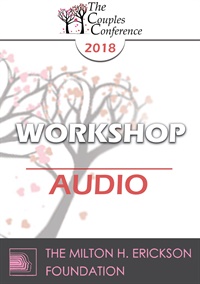
- Average Rating:
- Not yet rated
- Topic Areas:
- Sex and Sexuality | Workshops | Couples Therapy
- Categories:
- Couples Conference | Couples Conference 2018 | Pioneers in Couples and Family Therapy
- Faculty:
- Stan Tatkin, PsyD, MFT
- Duration:
- 1:59:07
- Format:
- Audio Only
- Original Program Date:
- May 04, 2018
- Short Description:
- This workshop explores sex as a core issue in couple therapy, emphasizing psychobiological and attachment-based frameworks. Tatkin presents bottom-up interviewing and assessment techniques that address implicit somatic responses, performance anxiety, and intimacy challenges. Clinicians learn to integrate neurobiology, arousal regulation, and attachment style into practical interventions for treating sexual dissatisfaction and dysfunction.
- Price:
- $15.00 - Base Price
Credit available - Click Here for more information
- Average Rating:
- Not yet rated
- Topic Areas:
- Couples Therapy | Keynotes | Continuing Education | Therapist Development | Clinical Psychology
- Categories:
- Couples Conference | Couples Conference 2018 | Online Continuing Education | Pioneers in Couples and Family Therapy
- Faculty:
- Ellyn Bader, PhD | Sue Diamond, MA, RCC
- Course Levels:
- Master Degree or Higher in Health-Related Field
- Duration:
- 1:00:59
- Format:
- Audio and Video
- Original Program Date:
- May 04, 2018
- Short Description:
- Sue Diamond Potts interviews Dr. Ellyn Bader about her 33 years specializing in couples therapy. They discuss what it was like when she started and how the field has changed. They especially focus on what Ellyn has learned from consulting to couples therapists from 33 countries. Ellyn also describes common mistakes therapists make and what it takes to help couples and couples therapists evolve.
- Price:
- $0.00 - $29.00
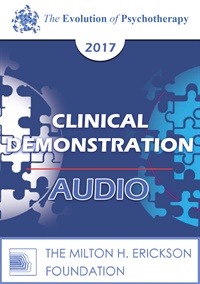
- Average Rating:
- Not yet rated
- Topic Areas:
- Clinical Demonstrations | Attachment | Couples Therapy | Emotionally Focused Therapy (EFT) | Psychotherapy
- Categories:
- Evolution of Psychotherapy | Evolution of Psychotherapy 2017
- Faculty:
- Sue Johnson, EdD
- Duration:
- 27:30
- Format:
- Audio Only
- Original Program Date:
- Dec 15, 2017
- Short Description:
- The session shown is of an unedited live consultation where the previous withdrawn male partner is now accessible and the therapist works with the inability of the female partner to trust, reach and engage with her mate. The session explicitly shows how the therapist works with blocks to the creation of key new responses and shapes bonding moments. This is a classic illustration of Stage 2 EFT in action and shows the moment to moment creation of secure connection. Therapist interventions will be outlined and discussed.
- Price:
- $15.00 - Base Price
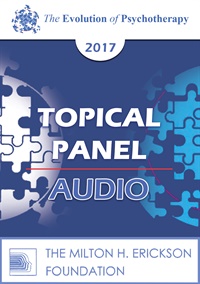
- Average Rating:
- Not yet rated
- Topic Areas:
- Topical Panels | Homework | Psychotherapy | Ericksonian Hypnosis and Therapy Techniques | Cognitive Behavior Therapy (CBT) | IMAGO
- Categories:
- Evolution of Psychotherapy | Evolution of Psychotherapy 2017 | Pioneers in Couples and Family Therapy
- Faculty:
- Judith Beck, PhD | Harville Hendrix, PhD | Helen LaKelly Hunt, PhD | Bill O'Hanlon, MS
- Duration:
- 1:03:16
- Format:
- Audio Only
- Original Program Date:
- Dec 15, 2017
- Short Description:
- This panel highlights the use of homework in therapy, emphasizing practical, personalized assignments to support client progress. Approaches include CBT techniques like affirmations and reminders, creative tasks inspired by Ericksonian methods, and Imago practices such as zero-negativity dialogs. The discussion focuses on relational competence, emotional safety, and the role of neuroplasticity in sustaining connection and change.
- Price:
- $15.00 - Base Price
Credit available - Click Here for more information
- Average Rating:
- Not yet rated
- Topic Areas:
- Speeches | Attachment | Psychotherapy | Couples Therapy | Family Therapy
- Categories:
- Evolution of Psychotherapy | Evolution of Psychotherapy 2017 | Online Continuing Education
- Faculty:
- Sue Johnson, EdD
- Course Levels:
- Master Degree or Higher in Health-Related Field
- Duration:
- 41:22
- Format:
- Audio and Video
- Original Program Date:
- Dec 15, 2017
- Short Description:
- A coherent science on attachment now offers therapists a map for self and relational system that cogently outlines both dysfunction and health – and how to lead clients from one to the other. This presentation will outline the strengths of this integrating framework as a general and specific in-session guide for individual, couple and family therapy, focusing on the map it offers for affect regulation, cognitive restructuring and behavior change.
- Price:
- $0.00 - $29.00
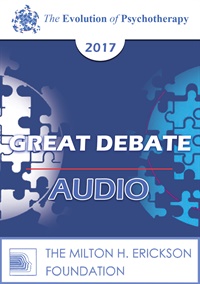
- Average Rating:
- Not yet rated
- Topic Areas:
- Great Debates | Attachment | Psychotherapy | Couples Therapy | Family Therapy
- Categories:
- Evolution of Psychotherapy | Evolution of Psychotherapy 2017
- Faculty:
- Sue Johnson, EdD | Daniel Siegel, MD
- Duration:
- 1:25:28
- Format:
- Audio Only
- Original Program Date:
- Dec 14, 2017
- Short Description:
- We will debate the Promise of attachment science as a guide to the practice of individual couple and family therapy in the 21st century including what this science tells us about how to understand mental health issues and the most direct pathways to positive change, health and resilience.
- Price:
- $15.00 - Base Price
Credit available - Click Here for more information
- Average Rating:
- Not yet rated
- Topic Areas:
- Great Debates | Couples Therapy | Conflict | Psychotherapy | Relationships
- Bundle(s):
- Learning Track - EP17 Psychoanalysis Stream
- Categories:
- Evolution of Psychotherapy | Evolution of Psychotherapy 2017 | Evolution of Psychotherapy Psychoanalysis Learning Track | Online Continuing Education | Pioneers in Couples and Family Therapy
- Faculty:
- Otto Kernberg, MD | Harville Hendrix, PhD | Helen LaKelly Hunt, PhD
- Course Levels:
- Master Degree or Higher in Health-Related Field
- Duration:
- 1:26:26
- Format:
- Audio and Video
- Original Program Date:
- Dec 14, 2017
- Short Description:
- This debate contrasts psychodynamic and Imago approaches to couples' conflict. One emphasizes transference and unresolved parental dynamics, while the other focuses on empathy, dialog, and the space between partners. Both highlight the role of childhood wounds in adult relationships and the importance of creating safe, empathetic environments where couples can reconnect and prioritize their relationship.
- Price:
-
Sale is $29.00
price reduced from Base Price - $59.00

- Average Rating:
- Not yet rated
- Topic Areas:
- Couples Therapy | Workshops | Affective Science | Somatic Psychology
- Categories:
- Couples Conference | Couples Conference 2017 | Pioneers in Couples and Family Therapy
- Faculty:
- Janina Fisher, PhD
- Duration:
- 1:56:31
- Format:
- Audio Only
- Original Program Date:
- Apr 02, 2017
- Short Description:
- This workshop explores somatic interventions to improve communication and connection in couples therapy. Emphasizing the role of non-verbal cues and procedural memory, Fisher introduces body-based techniques such as tracking arousal patterns, using gestures to foster empathy, and teaching somatic resources. The session addresses how trauma histories can shape relational dynamics, and offers practical tools for navigating emotional triggers, managing conflict, and distinguishing between trauma and distress.
- Price:
- $15.00 - Base Price
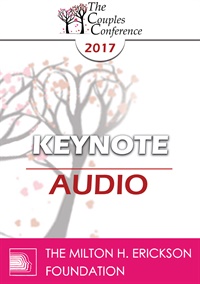
- Average Rating:
- Not yet rated
- Topic Areas:
- Couples Therapy | Trauma | Keynotes | Intimacy | Trauma Studies
- Categories:
- Couples Conference | Couples Conference 2017 | Pioneers in Couples and Family Therapy
- Faculty:
- Janina Fisher, PhD
- Duration:
- 54:20
- Format:
- Audio Only
- Original Program Date:
- Apr 02, 2017
- Short Description:
- Fisher explores trauma's profound impact on couples' relationships, revealing how past experiences shape attachment patterns, trigger conflicts, and disrupt intimacy. Through sensory motor psychotherapy, she offers innovative strategies for healing, emphasizing safety, understanding non-verbal memories, and rebuilding connection.
- Price:
- $15.00 - Base Price


